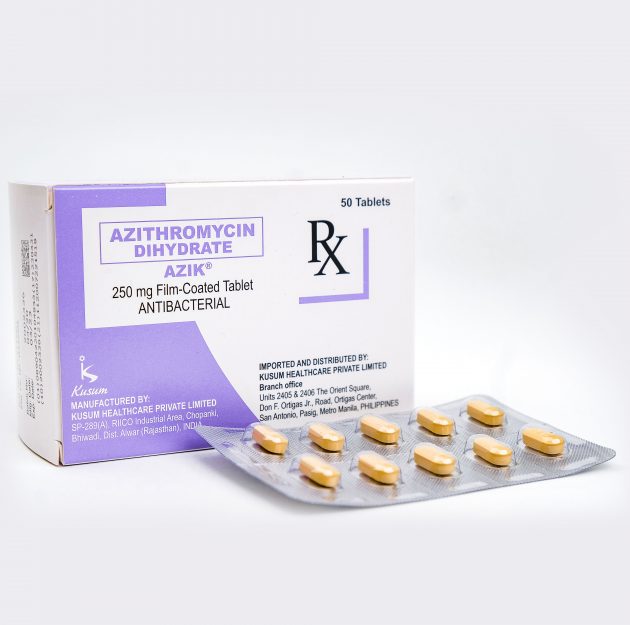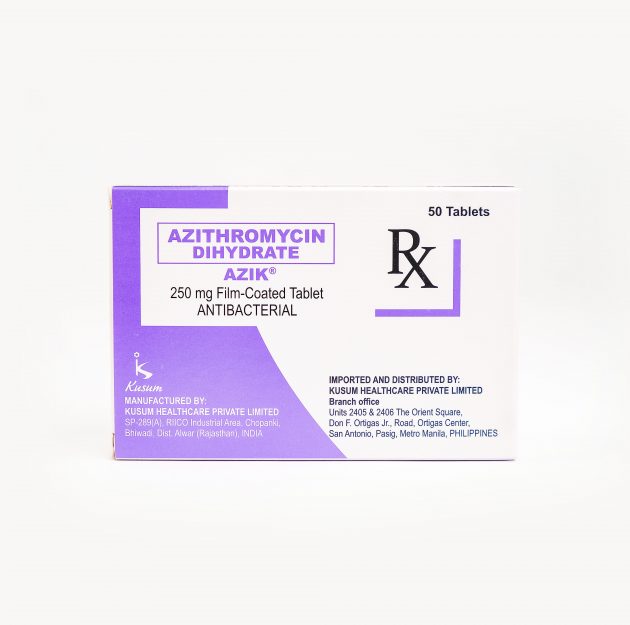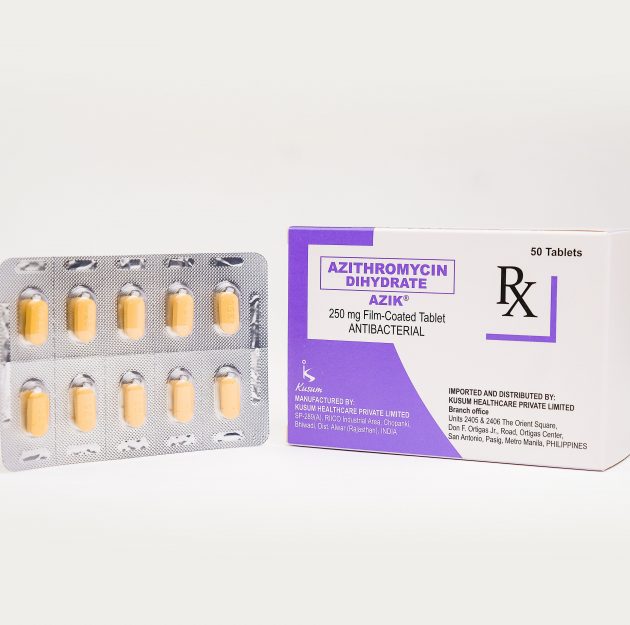Dosage and Administration :
Azithromycin tablets should be given as a single daily dose. The tablets may be taken with food.
Adults
In uncomplicated Chlamydia trachomatis urethritis and cervicitis the dosage is 1000 mg as a single oral dose. For all other indications the dose is 1500 mg, to be administered as 500 mg per day for three consecutive days. As an alternative the same total dose (1500 mg) can also be administered over a period of five days with 500 mg on the first day and 250 mg on the second to the fifth day.
Elderly patients
The same dose range as in younger patients may be used in the elderly.
Children
Azithromycin tablets should only be administered to children weighing more than 45 kg, normal adult dose should be used. For children under 45 kg, other
pharmaceutical forms of Azithromycin, e.g. suspensions may be used.
In patients with renal impairment
No dose adjustment is necessary in patients with mild to moderate renal impairment (GFR 10-80 ml/min)
In patients with hepatic impairment
Dose adjustment is not necessary for patients with mild to moderately impaired liver function.









